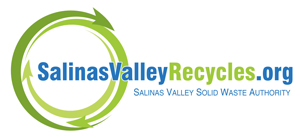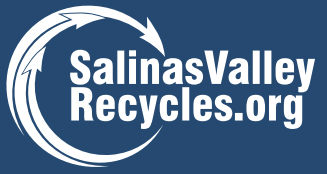Dear Wally,
I just got a notice that my garbage bill is going up AGAIN! What does my garbage bill cover? I feel like I’m spending a lot of money to get rid of my trash but I’m also giving away my recyclables and yard waste that you then turn into a profit. Why doesn’t that profit cover the cost of dumping my garbage into a pit at the landfill?
Sincerely,
Monterey County Resident
~~~~~~~~~~~~~~~~~~~~~~~~~~~~~~~
Dear Resident,
Salinas Valley Recycles is not your garbage and recycling collection hauler sending your garbage bill – we are your landfill operators, recyclers, composters and stewards for Salinas Valley community services and solid waste programs.
As operators of the Johnson Canyon Landfill in Gonzales, we ensure environmentally safe and responsible burial of trash, under strictly regulated State and local guidelines. The real estate permitted for any landfill is limited, so when that space is used up, the landfill must be closed and monitored for environmental safety for decades afterwards. Salinas Valley Recycles is not only responsible for maintaining the active landfill in Gonzales, but we care for three closed landfills including Crazy Horse Landfill and Lewis Road Landfill in northern Monterey County, and Jolon Road Landfill near King City.
Local communities including the cities of Salinas, Greenfield, Gonzales, Soledad and King, plus the eastern unincorporated areas of Monterey County, contract with curbside collection service providers (haulers) such as Republic Services, Tri-Cities Disposal and Waste Management Inc. respectively. Those haulers bring the collected trash from homes, schools and businesses to the nearest Salinas Valley Recycles facility, and trash is ultimately landfilled at the Johnson Canyon Landfill in Gonzales.
For landfilling trash, Salinas Valley Recycles collects a “tipping fee” which is based on per ton (weight) of the trash received. For the proposed 2019-2020 fiscal year budget, the Landfill or Solid Waste tipping fees remain steady $68.50 per ton and have not increased since July 2016 but the AB 939 Fees (recycling) are increasing to cover the full cost of yard waste processing for Salinas and help the reduce illegal dumping in the County. Tipping fees and AB 939 recycling fees help pay for equipment, staff and other overhead costs to maintain the landfills, providing recycling centers and services to collect and process hazardous waste materials, contract with organic waste processors, ensure environmental compliance, and provide a myriad of other community services such as litter abatement, community cleanup events, public education, and assisting residents and businesses to maximize their waste recycling and diversion efforts.
Depending upon where you live, approximately 27-35% of your garbage bill goes toward the tipping and recycling fees. The rest stays with the hauler for their operating costs with a percentage going to the city or county as a franchise fee. Haulers set their rates annually, which are then approved by the respective city or county to determine what they will bill to you, their customer.
In an ongoing effort to extend the useful life of the only remaining landfill in eastern Monterey County, haulers also offer curbside services to collect recyclable materials for recycling, and separated yard waste for processing into compost, wood chips and mulch. An Organic Waste tipping fee increase is being phased in over three years, to provide for expanded composting services and increases in recycled organic matter to meet new and much stricter State laws for diverting organic waste (like food scraps) from landfills and reduce the resulting greenhouse gases.
Recycling is the process of recovering materials from discarded products and converting them into new products, creating jobs and consuming fewer resources such as fuel, water and energy than virgin materials.
Recycling is not free, and is not currently profitable. In the wake of a tightening resale markets for recycled materials in China and Asia, finding a buyer for your discarded plastics, paper, and cardboard has become increasingly challenging and more costly – but plastic, especially plastic packaging, is very difficult to sell in today’s markets. There is simply too much of it, there tends to be a high level of contamination (such as liquids and food residue) in plastics, and buyers seek the higher quality plastics (such as #1 and #2) commonly used for containers to be reimagined into new products.
Historically, most recycling services have strived to achieve a break-even where resale of collected materials would offset the costs of collection, processing and transporting to market. The greatest value of recycling is to keep our communities in compliance with increasingly stringent waste diversion laws set by the State of California (avoiding fines), to extend the lives of existing landfills, recover valuable resources and thereby preserve our remaining public spaces for higher uses. Hence our slogan: Promoting a Future Without Landfills.
For the foreseeable future, landfills are still necessary. Salinas Valley Recycles is currently planning a new “module” or area of the landfill to provide capacity for future landfilled waste. At the same time, we are investing in new systems to make that new Module last longer and in the process divert more commercial agricultural and organic waste and improve services to our community. Both Salinas Valley Recycles and our community haulers want to encourage greater waste diversion and responsible waste disposal in the Salinas Valley to improve the environment for everyone.

